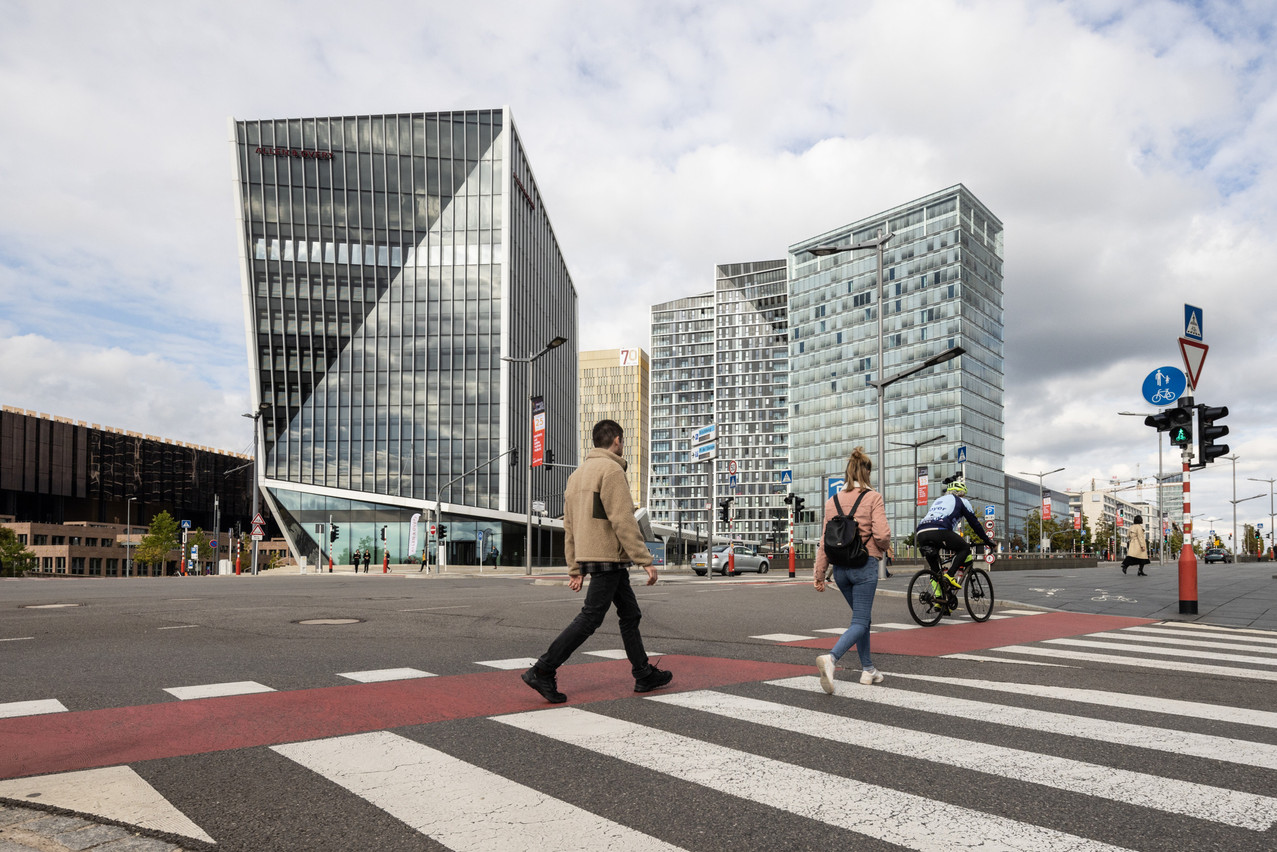In a context of inflation, macroeconomic volatility, growing cyber risks, housing costs, exploding cost-of-living, the talent-job market mismatch, climate change, the Ukraine war and its unknown end date, the short-term future of companies is challenged worldwide. “The challenges and risks businesses face today are not only of a new magnitude, but wholly intertwined and interdependent” as PwC puts it in its report, released on Wednesday. CEOs around the world are bracing for bleak months, especially those based in the grand duchy.
“CEO sentiment is generally seen as a reliable indicator of future GDP growth,” says the firm. That’s why, for the 2023 study, 85 respondents in Luxembourg answered questions on their company’s worries, investments and priorities over the years to come. The majority of these CEOs came from the financial sector, with the asset and wealth management industry represented the most.
Luxembourg CEOs uncertain and uneasy about near future
The last PwC CEO survey was undertaken in 2021--when the covid-pandemic was beginning to give way to an economic rebound. 2023, with the challenges it carried in from 2022, sees a trend towards localisation and raises questions around the future of globalisation and inflation. Compared to global CEOs, Luxembourg CEOs were more pessimistic when it came to revenue growth over the next twelve months and three years. 42% of global CEOs were confident about the next 12 months, and 53% for the next three years, against Luxembourg leaders, whose confidence decreased from 38% to 33% over time.
Luxembourg CEOs not active in the financial sector were also more confident (54%) than their homologues from the financial industry (34%) over the short term, as the first likely considered the easing of supply chain issues and the latter kept the continuous decline of markets due to money tightening practices in mind. In contrast, when considering the longer term, the sentiment seems to flip: only 27% of non-financial CEOs believed in revenue growth against a stable 34% for the financial sector over the next three years.
Urgent solutions needed for future resilience
As has been identified and repeated by various political and industry players over the past years, Luxembourg’s future resilience to shocks will depend on its ability to fix longstanding structural issues. The country was able to brace the costs linked to the covid-pandemic slowdown of 2020 and has one of the lowest debt-to-GDP rates in the EU, which gives it a margin to work with in future crises.
However, as participating CEOs pointed out, not solving existing macroeconomic imbalances “could severely hamper the country’s growth” moving forward. Necessary changes include a pension reform--this expenditure is expected to make up 18% of the country’s GDP by 2070--and housing costs that impact country’s attractiveness--a key element in the face of a workforce shortage. Another issue is that cross-border workers, who make up of the grand duchy, are bound to the fiscal agreements between neighbouring states: aside from creating inequalities in terms of remote work, this may deter future candidates from joining. The high levels of private debt of households--averaging at 180.94% in the grand duchy against the EU’s 95.78%--are also posing a threat to the country’s future well-being.
Cyber risks perceived as bigger threat in Luxembourg
When asked to point out the biggest obstacles their company will face over the next year, global CEOs listed inflation (41%), macroeconomic volatility (36%) and geopolitical conflicts (25%) as the most important threats. Cyber risks were only considered by 20% of CEOs. In Luxembourg, inflation and macroeconomic ranked at the top too, but cybersecurity landed on third spot (28%). Still, 27% of Luxembourg CEOs felt that their company was also exposed to the impact of geopolitical conflict.
“This high level of sensitivity to cybersecurity risks across financial sector and non-financial sector respondents points to the advanced and ever-increasing degree of digitalisation across Luxembourg’s economic fabric,” says PwC.
This pressure point translates into a majority of finance sector leaders planning to invest more heavily in cybersecurity and data privacy over the next twelve months.
Climate change takes a step back
With many of the Luxembourg respondents coming from the financial sector--where sustainability, climate change and ESG keep coming back to the centre of discussions--climate change ranked low among CEO worries, both on the short and long term. For the next year, only 11% of Luxembourg CEOs (14% globally) believed they were exposed to this threat. This number increases for the 5-year-outlook where 20% of local respondents identified climate change as an issue, compared to 22% globally.
This could be explained by the fact that Luxembourg CEOs consider climate risk will not have a very large impact on their business over the next 12 months. Only 6% considered it would heavily impact their cost profile, 5% their supply chain and 1% their physical aspects. 22% felt it would impact their company to a large extent, though in general the impact on either aspect is expected to be moderate, limited or inexistant--a view mirrored by survey participants worldwide.
Somewhat reassuring is the fact that “compared to their global peers, Luxembourg CEOs appear to have a head start,” when it comes to implementing new climate-friendly products and processes. This position as sustainability pioneer makes it the prime candidate to develop and test new products and standards in terms of ESG, underlines PwC. Stronger focus on developing ESG expertise could also serve as a talent magnet for the young workforce.
While some longer-term issues like climate change are somewhat pushed to the back-burner to leave space for the economic crisis and its evolving and uncertain repercussions, the survey found that Luxembourg CEOs had a more somber attitude towards the near future, which translates into more hiring freezes (53%), reducing operating costs (85%), reevaluating ongoing projects (73%) and raising end user prices (65%). Reducing the workforce remains low on the action list (33% against 39% globally), as is reducing compensation (25%).
Find the full report .
